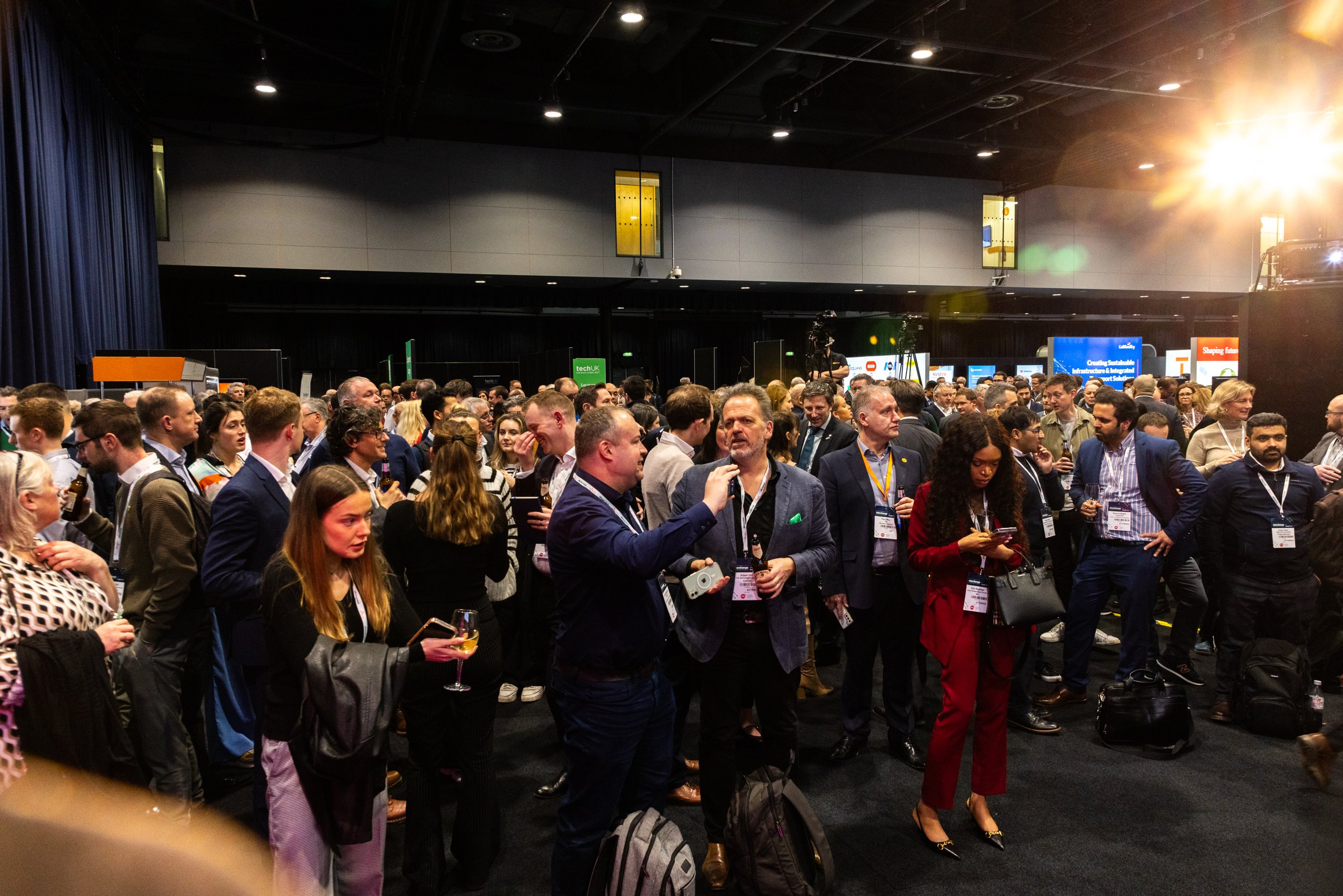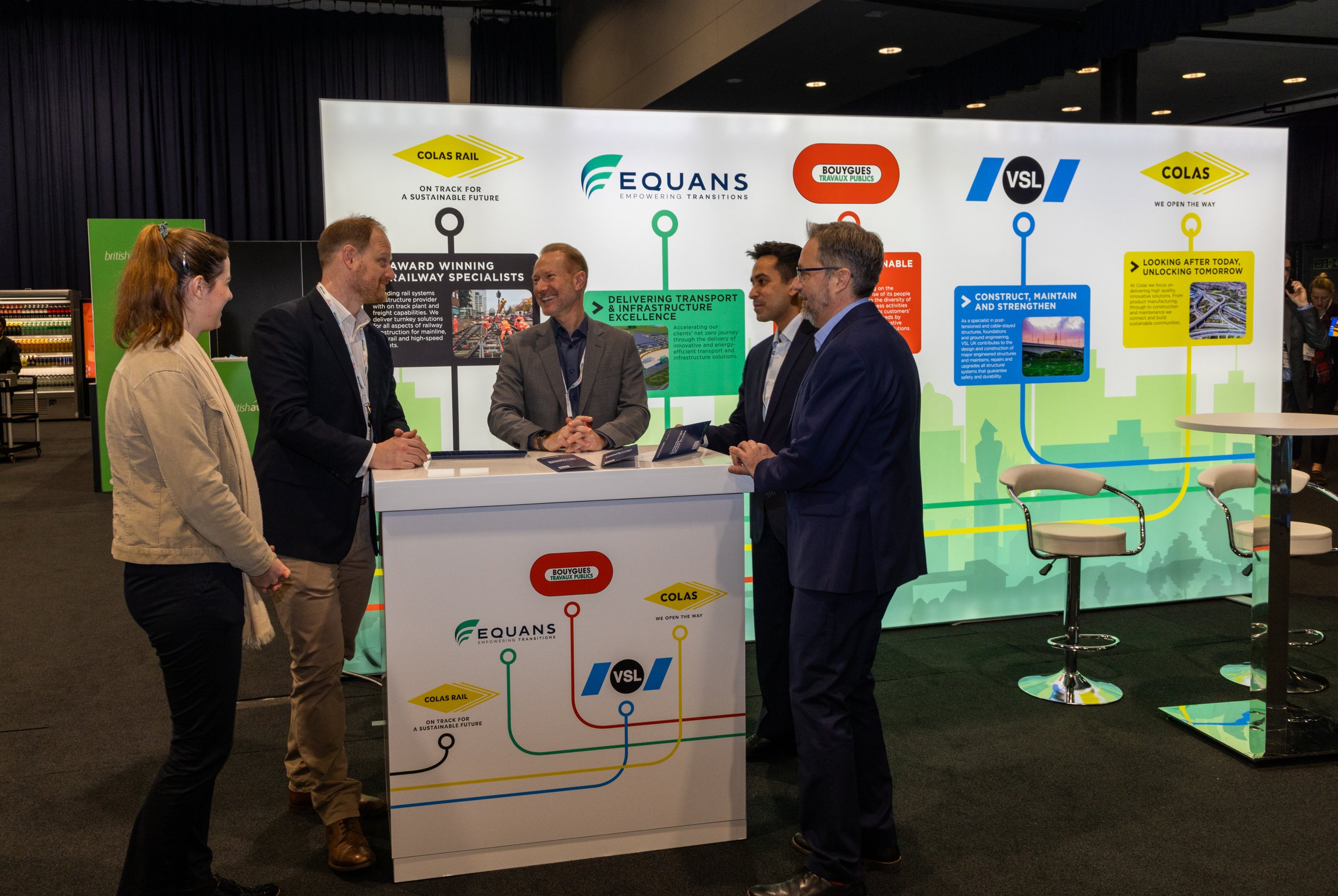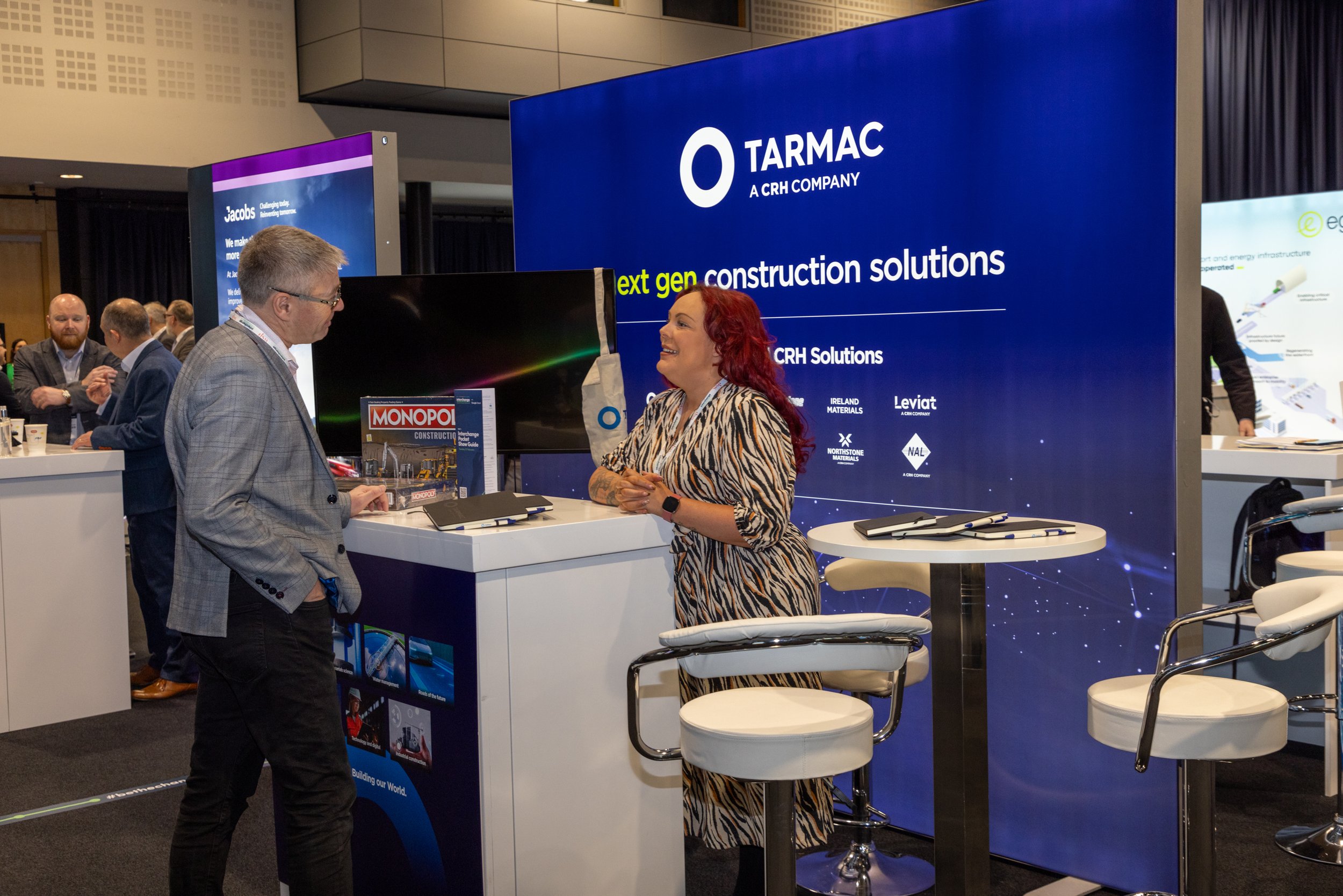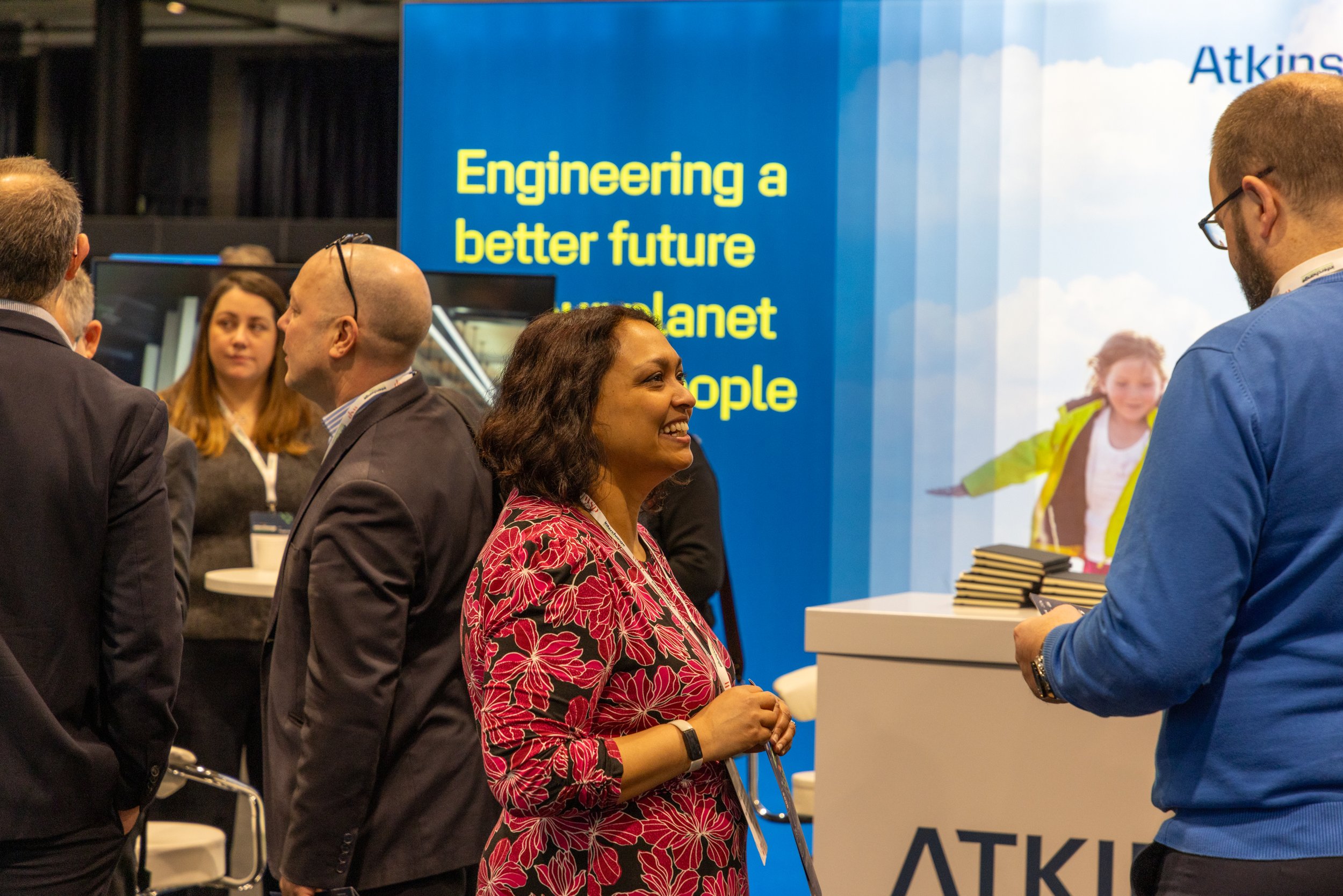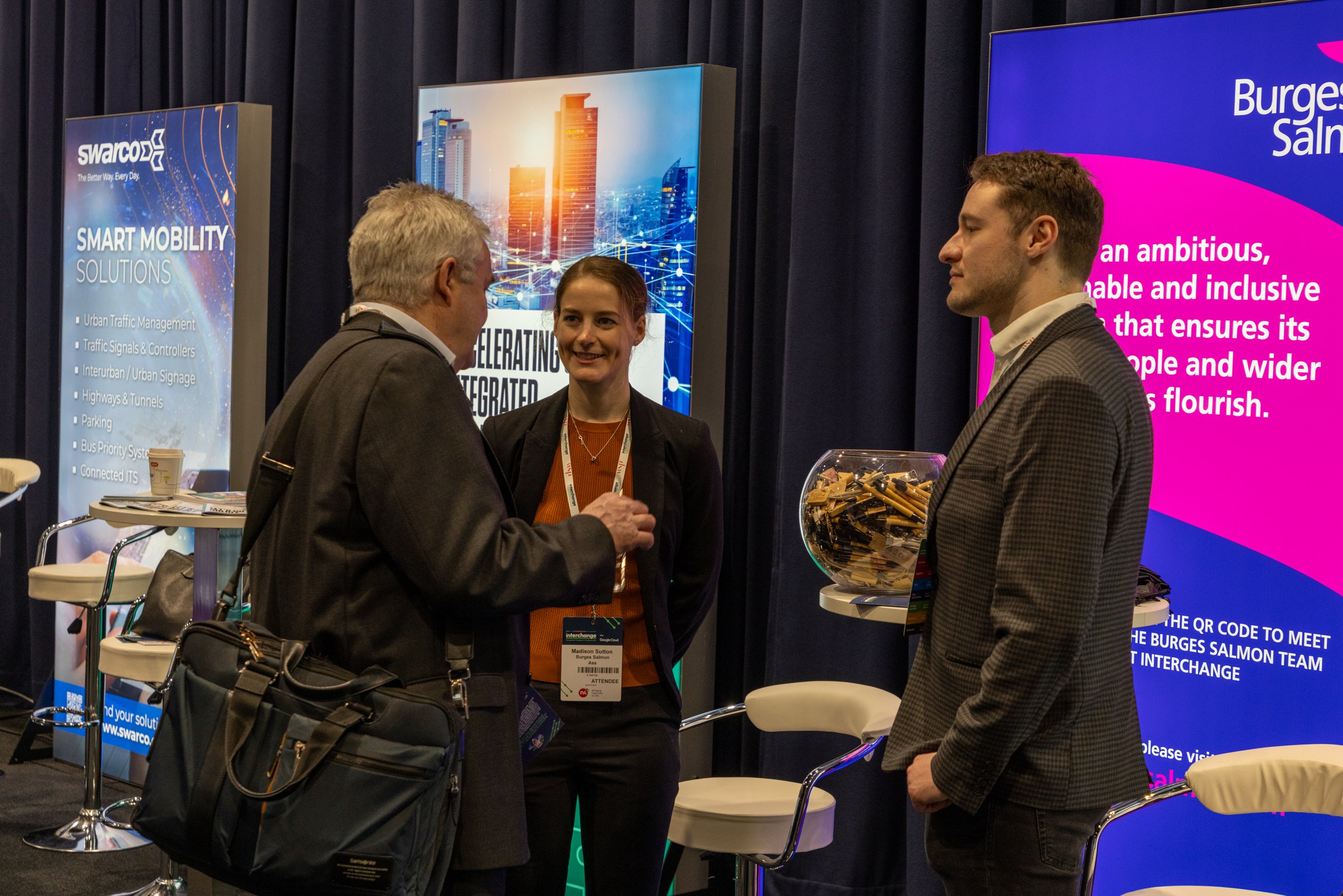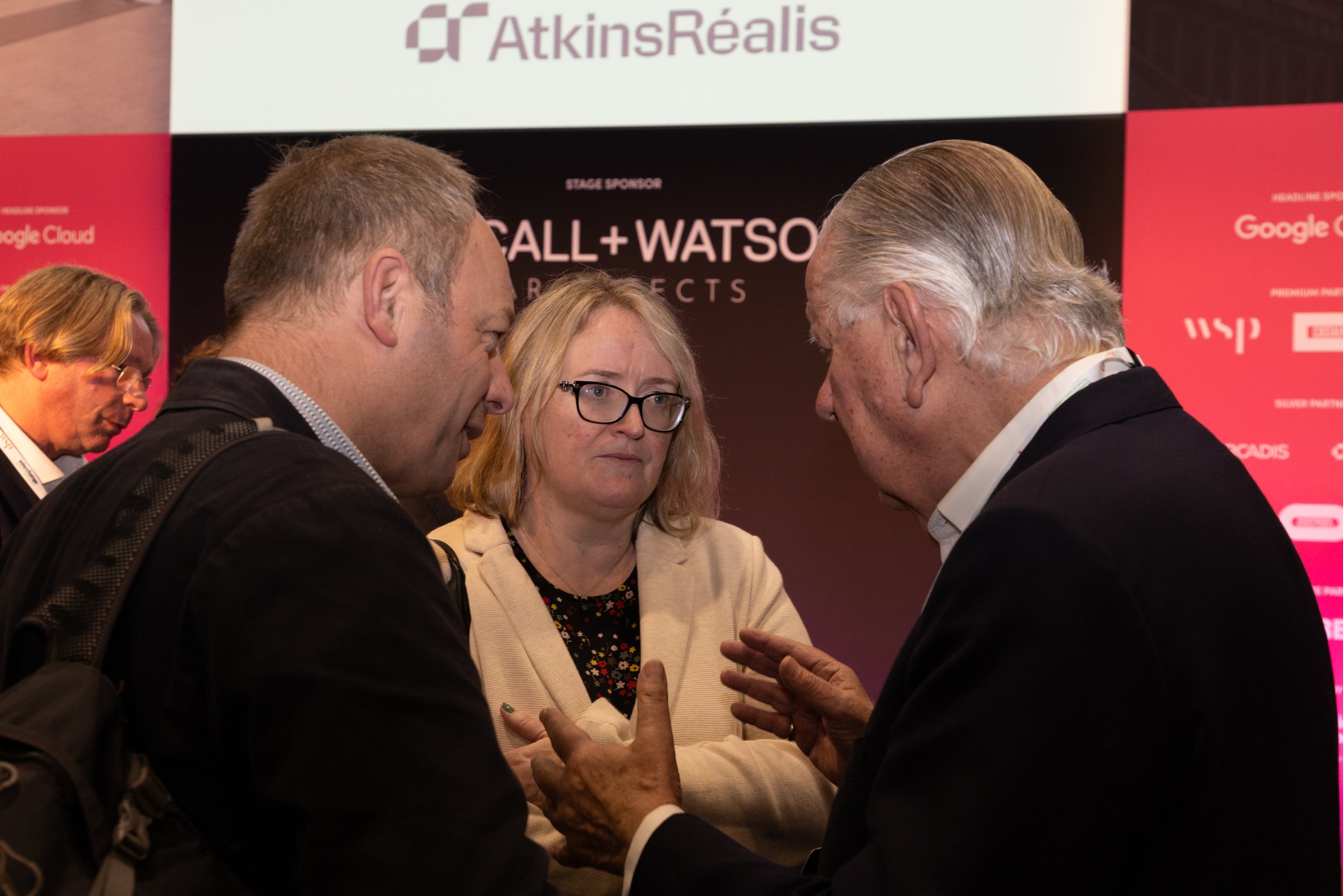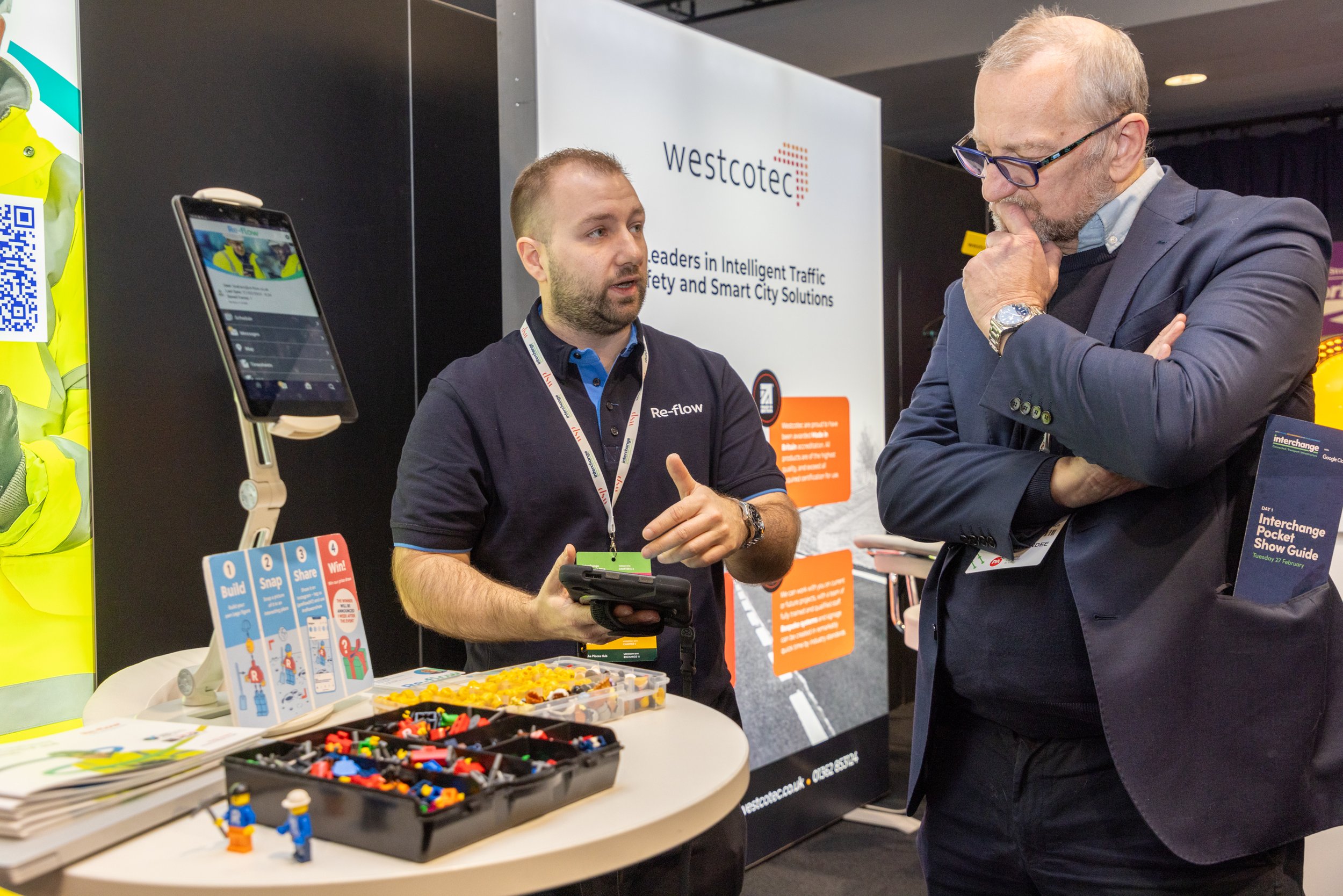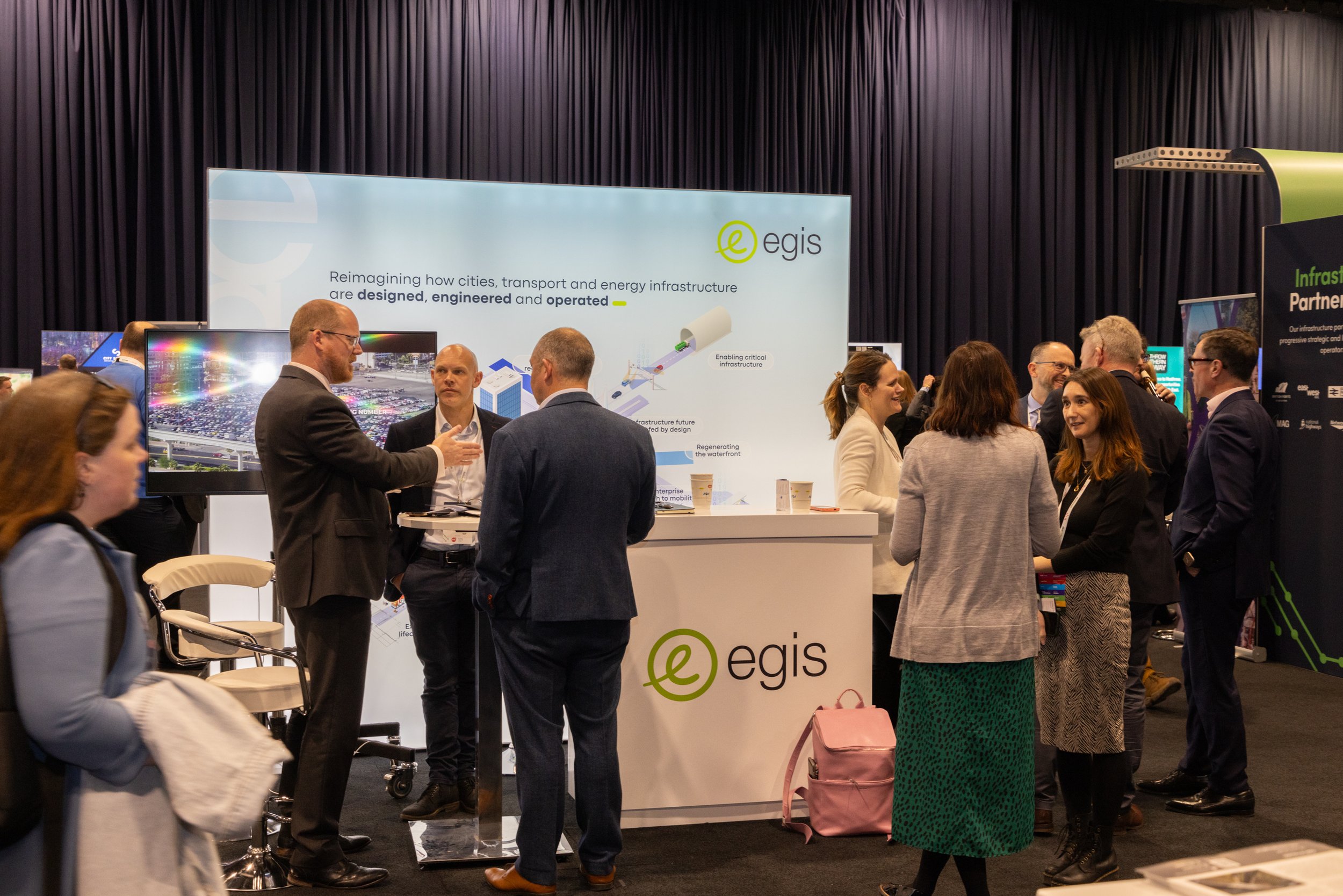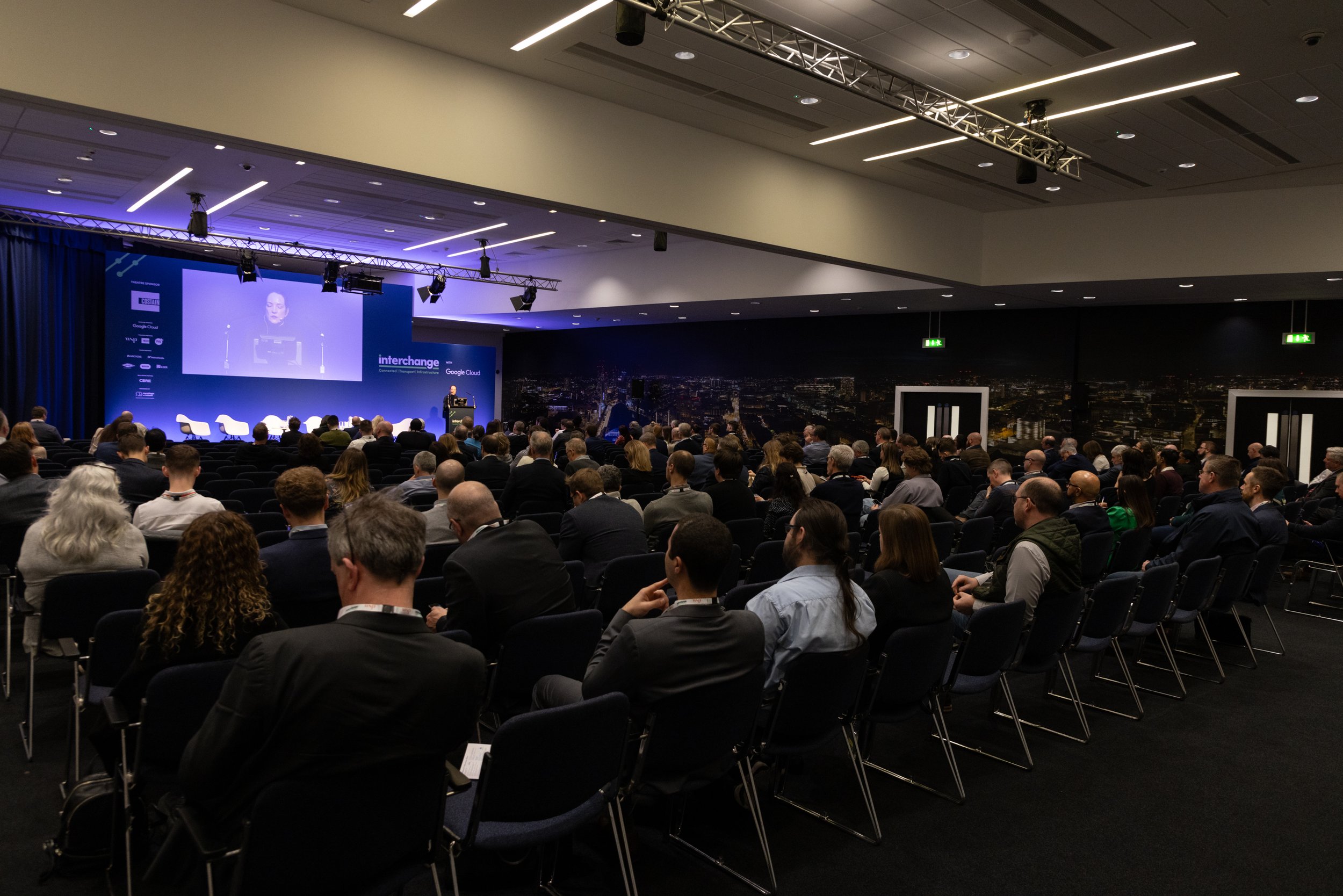
Core Themes
Our Four Pillars
Interchange is about achieving a seamless and sustainable multi-modal transport system that works for people, the economy and the environment.
With a focus firmly on infrastructure we bring together major public and private transport infrastructure clients, national, regional and local transport authorities with the energy, environmental property, telecoms and tech sectors and their upstream supply chains — all key to enabling a more effective and decarbonised transport network.
Workgroups
We believe in fostering a collaborative approach, breaking down long-established silos and systems thinking. And to help us ensure that we adhere to these core tenets we are convening four working groups focusing on the interrelationships between transport and in turn: place, energy, data and environment.
Each working group will meet three times during the second half of 2024 with the express purpose of identifying content ideas and securing speakers for Interchange 2025, which takes place at Manchester Central on 4/5 March. With two Interchange theatres running in parallel, together with thematic keynotes and round table sessions, each group will input into the creation of approximately one days’ worth of content running across the two days of the event.
Places
The interplay between transport and place is the rhythm of modern life, it’s what makes a place work or not. Good transport gives access to employment, health, education, business, retail, culture, leisure and more. It must also be accessible, equitable and people-centric.
Effective transport and place planning requires interdisciplinary collaboration among planners, engineers, architects, developers, investors, environmentalists, policymakers, and community stakeholders to address the many complex challenges and create thriving, sustainable places and communities.
As one of four threads running across the Interchange programme, the places content will explore the challenges and opportunities from creating better places with better transport.
Typical areas of interest could be:
Better integration between transport, development and land use planning across urban, suburban and rural areas
Making transport hubs and interchanges people-centric destinations that are vibrant, economically successful and accessible for all
Increasing active travel through development and better connecting with bus and rail
Increasing public transport ridership, reducing car dependency and providing viable alternatives to private cars in rural areas
Attracting investment in property and public realm through better connected places
Funding transport infrastructure through land value and other novel mechanisms
Utilising legacy land owned by transport authorities/owners
International exemplars
Energy
Decarbonising transport at pace is driving a growing symbiotic relationship between the transport and energy sectors.
But it’s more than a conversation on the roll out of electric vehicle charge points. The energy generation, transmission and distribution market is changing and transport needs a seat at the table. And what of the potential for hydrogen especially for hard to decarbonise transport including HGVs, aviation and maritime.
The energy programme will explore how greater collaboration between transport and energy will help accelerate the action the UK needs right now to achieve joined-up, carbon-free, affordable solutions to keep the UK moving and thriving.
Typical areas of interest could be:
Roll out of the public EV charging network with the right charging capability where it’s needed across the local and strategic road networks
Ensuring the power is where it’s needed. What are the generation and storage solutions for areas with poor grid connections?
Accelerating new grid connections
Charging infrastructure for heavy vehicles including freight and buses
Ensuring charging infrastructure is powered by green energy
Hydrogen generation, storage, distribution. Applications and who pays…
International exemplars
Environment and
Climate Change
Transport is globally the biggest contributor to climate emissions, it pollutes our towns and cities and is a major factor in the UK’s worrying collapse in biodiversity.
Furthermore the changing climate with higher temperatures and more extreme rainfall is already starting to cripple our aging transport infrastructure. On the basis that the problem is the solution how do we move to a situation where our transport system is both decarbonised and operationally functional. Arguably we have the technology and know how to create more sustainable and climate-resilient transportation systems, but how do we get there with the urgency our future generations need?
As one of four threads running across the Interchange programme, the environment content will drill into a range of interrelated areas including:
Enhancing transport infrastructure resilience to everyday climate change and extremes: from individual assets to entire systems
Enabling the shift to decarbonised transport modes
Reducing whole life carbon in infrastructure construction, maintenance and operations through design
Supporting biodiversity and incorporating nature-based solutions
Circular thinking within transport infrastructure systems: retaining materials’ value, incentivising re-use, better data, asset management
International exemplars of what good looks like
Digital & data
Digitalisation, the power of data and generative artificial intelligence are rapidly transforming the way we design, build, maintain and operate transport networks. Data is also key to making transport infrastructure more efficient and effective, more sustainable, more resilient, more accessible and improving the user experience.
Google Cloud, in partnership with Interchange, are convening a diverse and experienced cross-industry working group to feed into the Interchange 2025 programme. The group will also share ambitions and challenges and set about tackling some of the most complex issues that hold the sector back today.
Typical areas of interest could be:
Digital transformation - augmenting industry operations through technology change
Cross-sector connectivity - fostering inter-modality and passenger centricity through digitally connected transport systems
Data collaboration and quality - delivering faster, more accurate insights to power decision making
Transport innovation - applying the latest technology to support transport strategies to improve passenger centricity, operational efficiency, engineering precision and climate resilience
Sponsor & Exhibit at Interchange 2025
Amplify your presence at Interchange 25 by aligning your brand with our range of sponsorship and exhibition opportunities.













